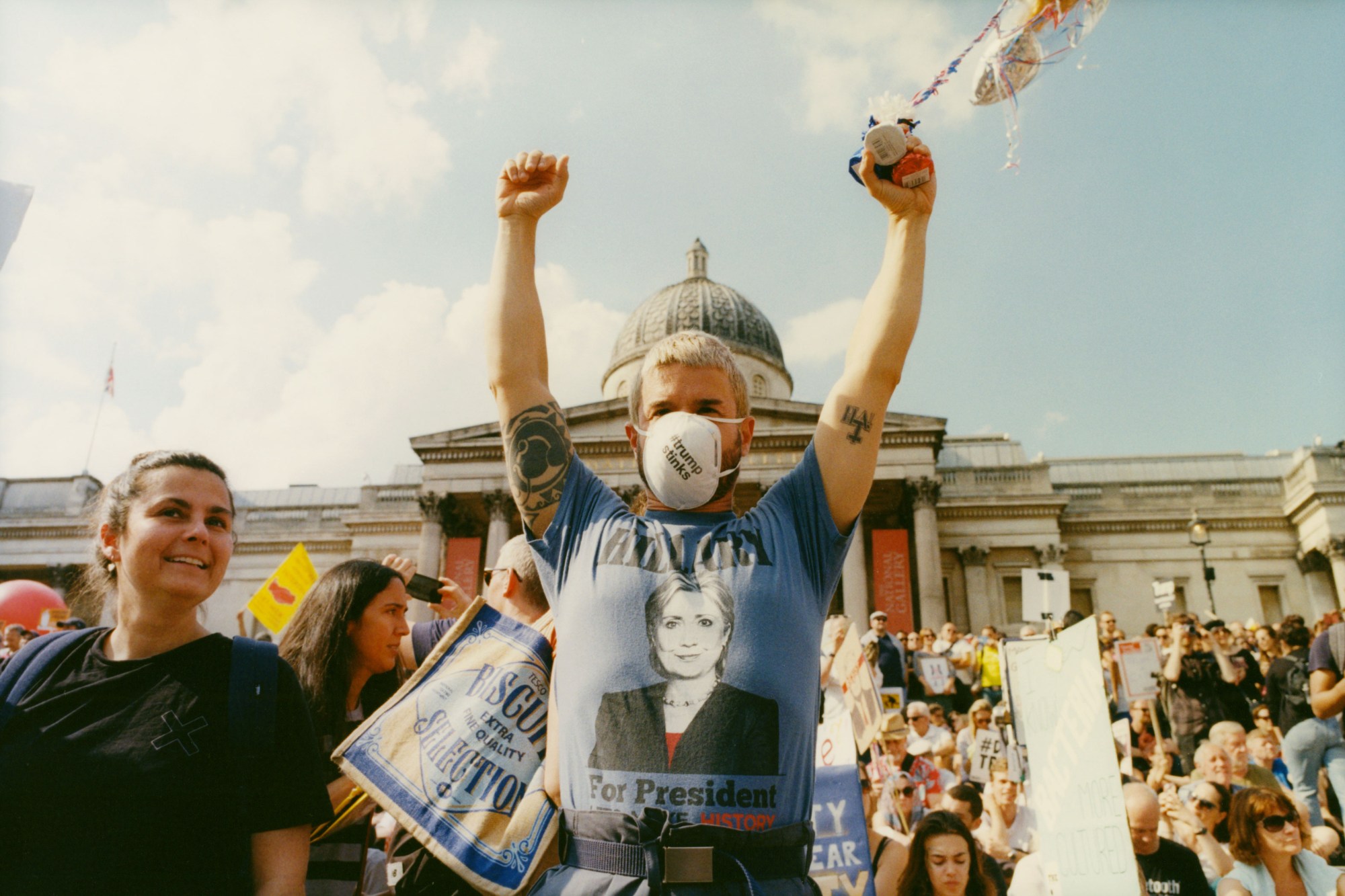On Friday the 13th of July 2018, London erupted with a roar. As Donald Trump arrived for his first official visit to the UK as US President, 250,000 protestors descended on the capital’s city centre — assembling at Portland Place and marching down Regent’s Street towards Trafalgar Square. Against a backdrop of Brexit, governmental chaos and World Cup semi-final defeat, the rallying cry against Trump’s bigotry was enough to inspire a moment of hope in even the most jaded of British hearts. It was, according to political network MSNBC, the largest protest against any foreign leader in UK history, and it was a beautiful one.
A miscellany of different voices came down to shout — young kids in bombastic outfits marched shoulder to shoulder with grandparents clutching homemade signs. The common thread that linked each protestor was not race, religion, age or gender, but simply a shared belief in respect, acceptance and equality. By early evening, Trafalgar Square was filled with a chaotic sound of music, chanting and cheering, as speakers took to the stage and pledged to keep speaking out in the face of divisive, draconian politics.
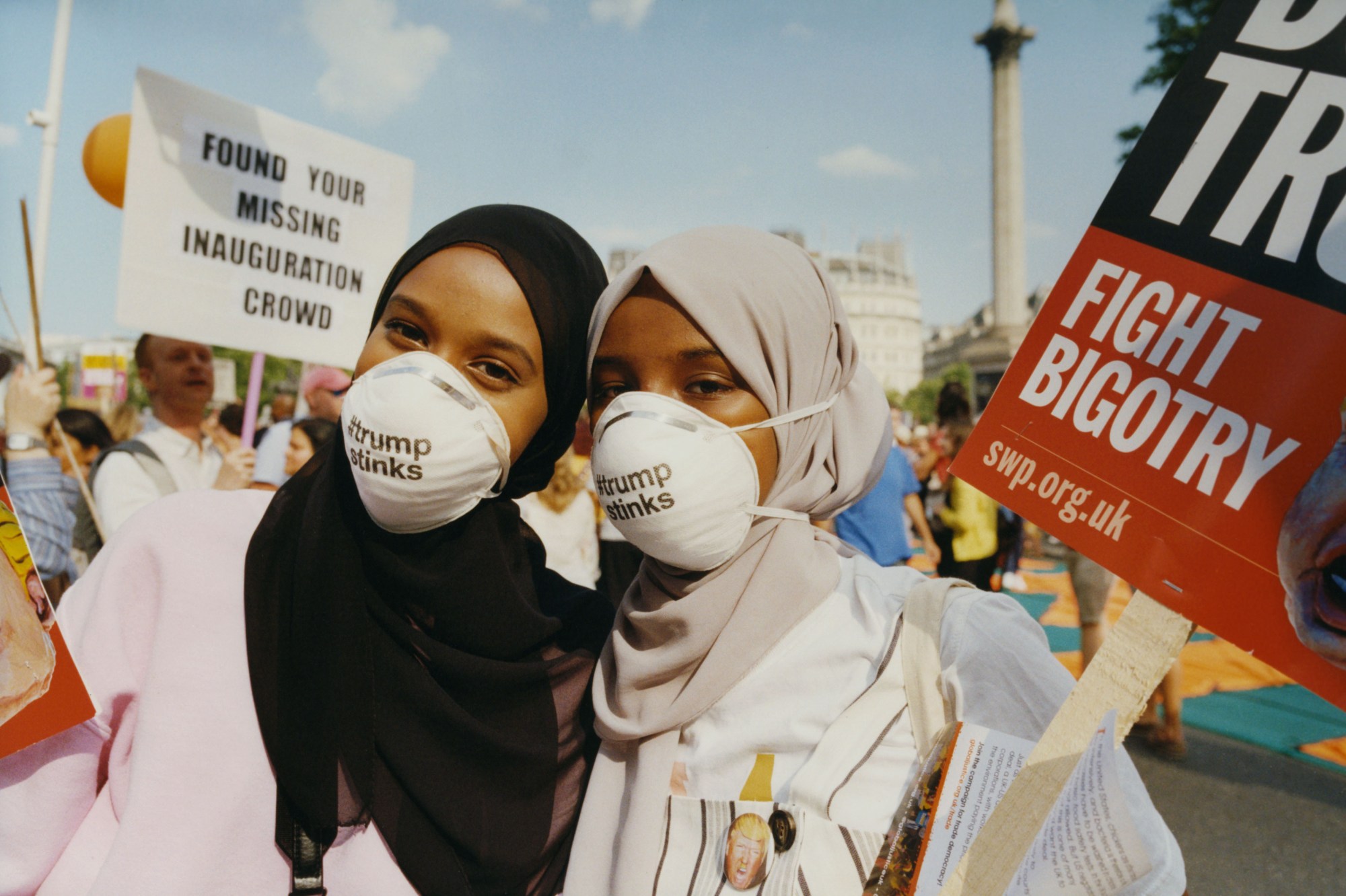
This is what the UK is. Not a press conference at Winston Churchill’s birthplace. Not afternoon tea in Windsor with the Queen. Not lawn bowls. Not Piers Morgan. It’s the creativity and commitment with which many stand-up in the face of hatred. Paradoxically, the protest against one man’s arrival — which spread from London to Scotland the next day as Trump travelled to his hotel and resort in Ayrshire — made the country feel more unified than it has in years.
For Owen Jones, the left-wing activist and founding member of the Stop Trump coalition, it was nothing but necessity. “Imagine there was no protest,” he explained after the march. “Just Donald Trump here for four days, treated as a normal president, red carpet out, Queen, banquet, the rest, without his hatred and his ideology being properly challenged.”

Not that this is simply about one man. “This demonstration is as much about Trumpism as it was about Trump. In this country, since the financial crash, we have seen rampant scapegoating of migrants, Muslims and refugees for the crimes and injustices of the powerful. What we’ve shown with our demonstration is that we will not tolerate that, we will fight back. They’ve had their carnival, they’ve had their big party, the fight back against right-wing extremism and scapegoating has really been unleashed by this demonstration, not just in terms of Donald Trump, but here and all over Europe.”
Asad Rehman, another founding member of Stop Trump, and director of anti-poverty charity War on Want, echoed Owen’s sentiments. “We live in a world where the rich get richer and billions are denied the right to a dignified life. Change comes from speaking truth and building power.” Born in Pakistan and raised in Burnley, for Asad the march was also about ensuring the progress Britain has made in his lifetime towards a fairer society isn’t undone on a global level. “Trump’s racism and bigotry, his pandering to the far right, calling for walls and fences, is an echo of the racism I grew up with in the 70s and 80s. It needs to be opposed.”
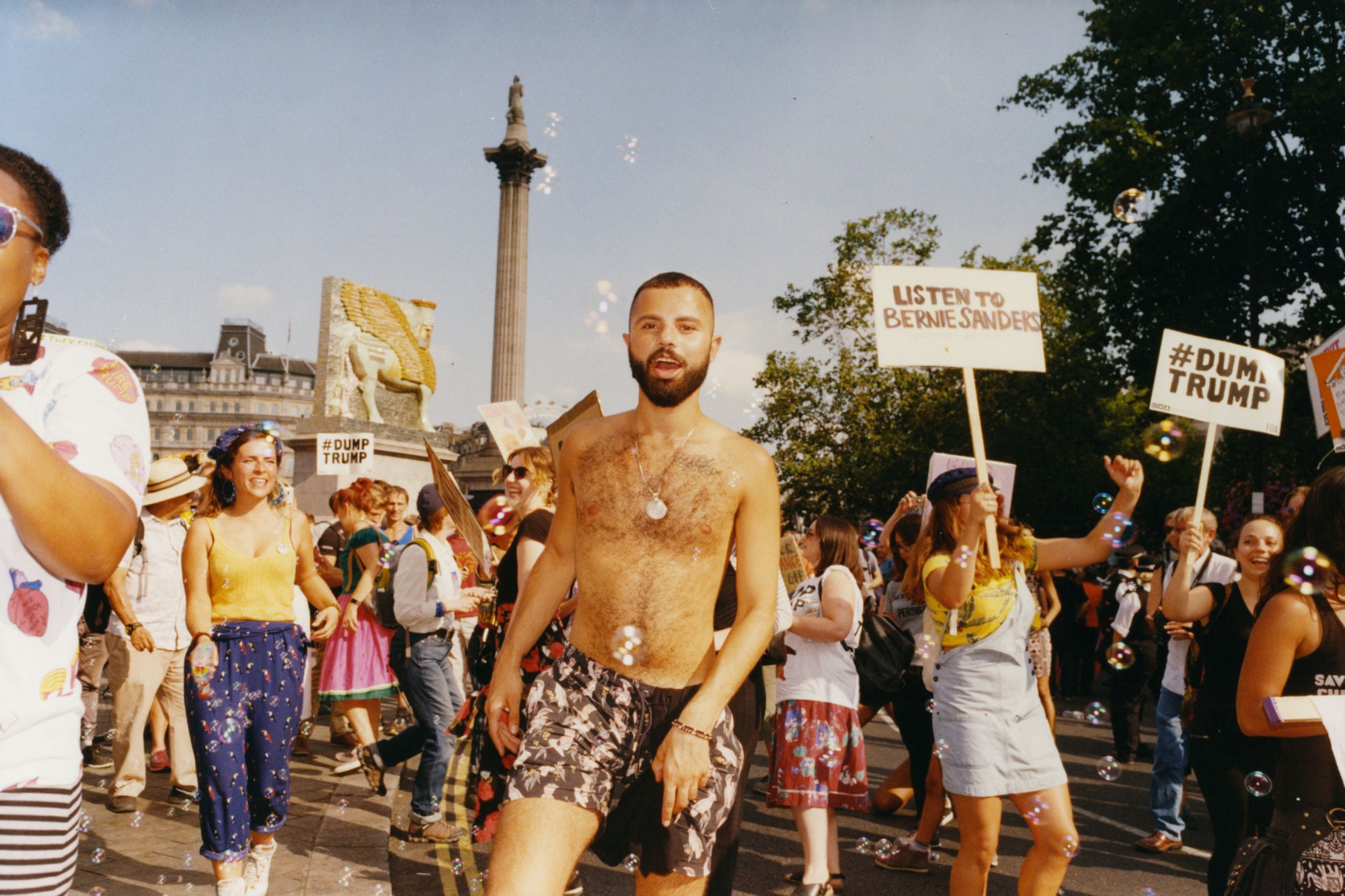
Speaking to many of the protestors on the street, and the determined few who went down to the US Ambassador’s residence at Regent’s Park on the Thursday evening, the answer to the question “What next?” was unanimous — resistance, equality, freedom. Against a tide of faux-activism, social media virtue-signalling and downright apathy, London’s Anti-Trump protest was a defiant reminder that many will scream and shout, and work tirelessly on creative signs and outfits. Traditional protest still matters and still works.
The success of Trump’s midterm elections isn’t in the hands of most of those who protested on Friday the 13th, but the rally sent a message to the world that Britain wouldn’t quietly accept the threat to democracy his presidency poses, nor will it stand idly by as racism, misogyny and homophobia spreads from the top down. “This demonstration was a statement of intent. We’re going to defeat a broken system,” Owen finishes with. The carnival of resistance is only just getting started.
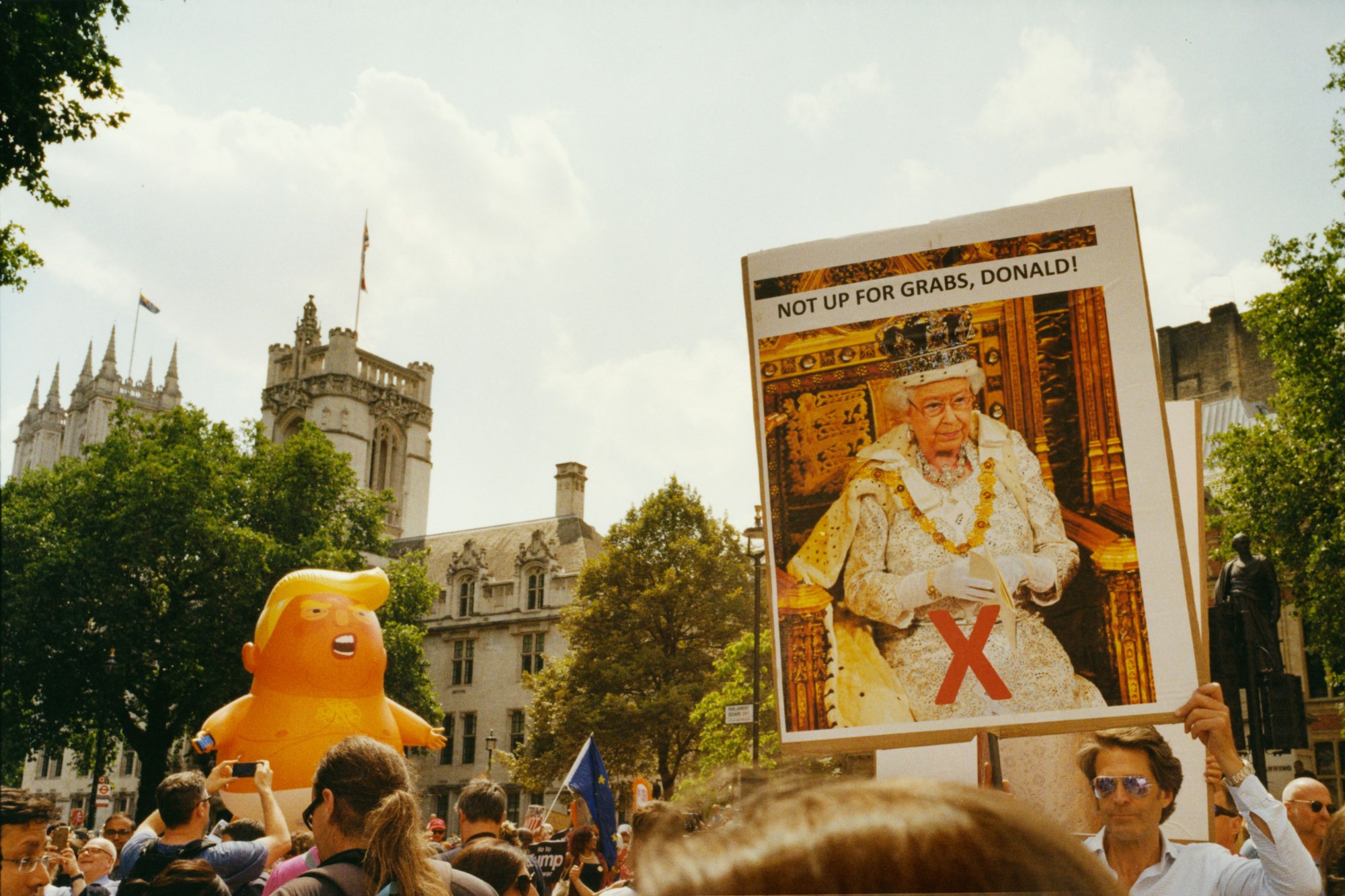
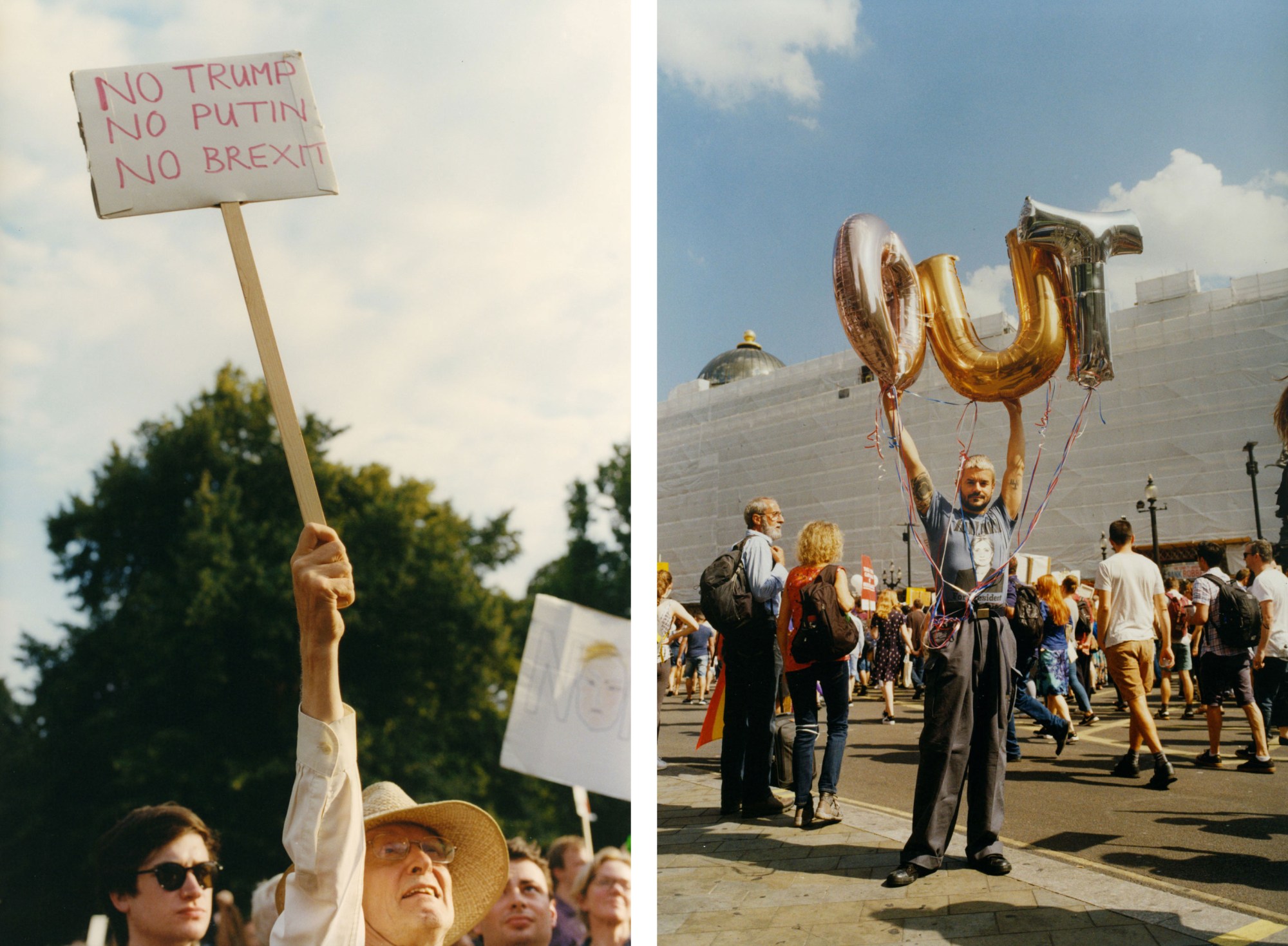
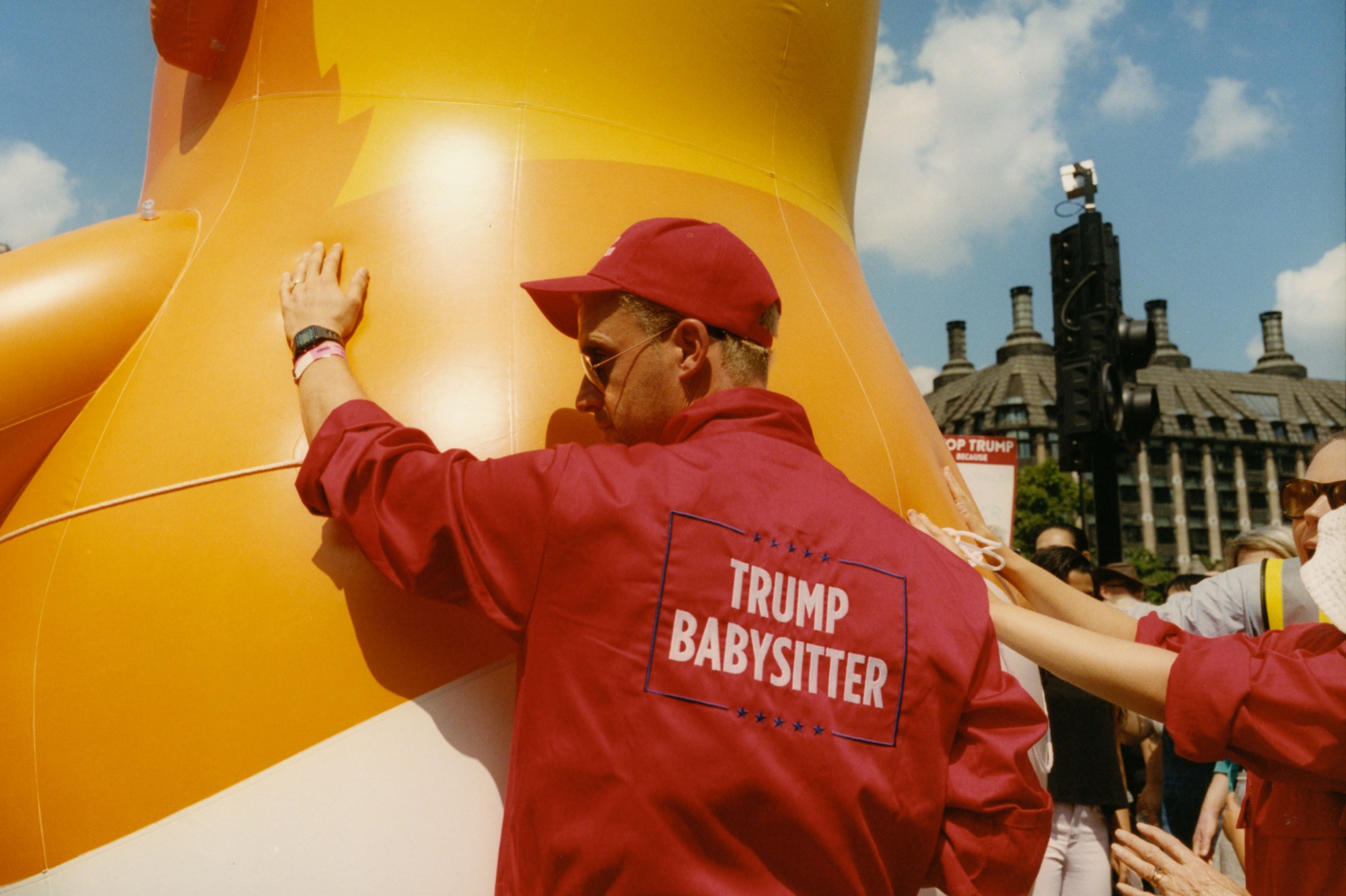
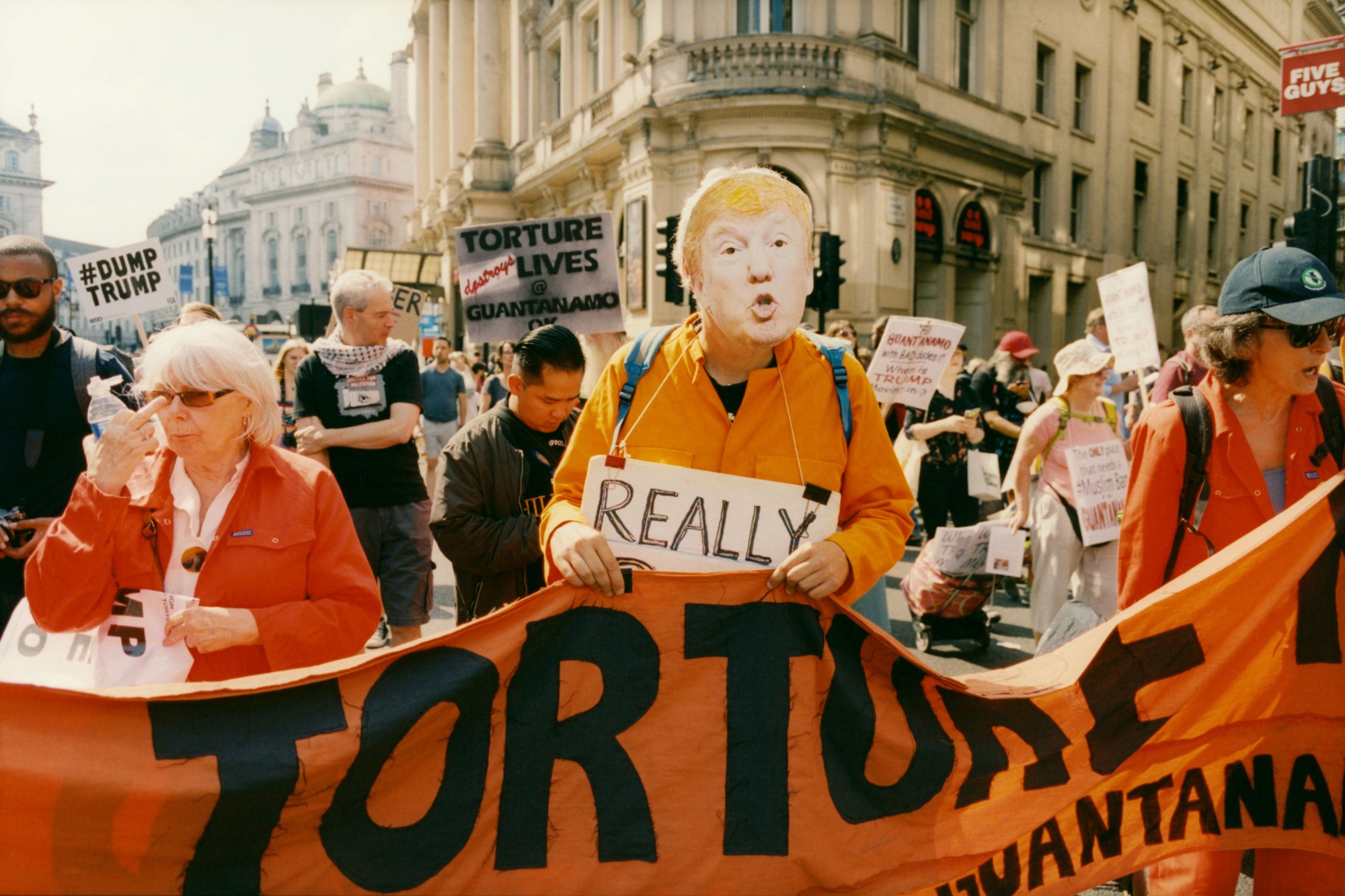
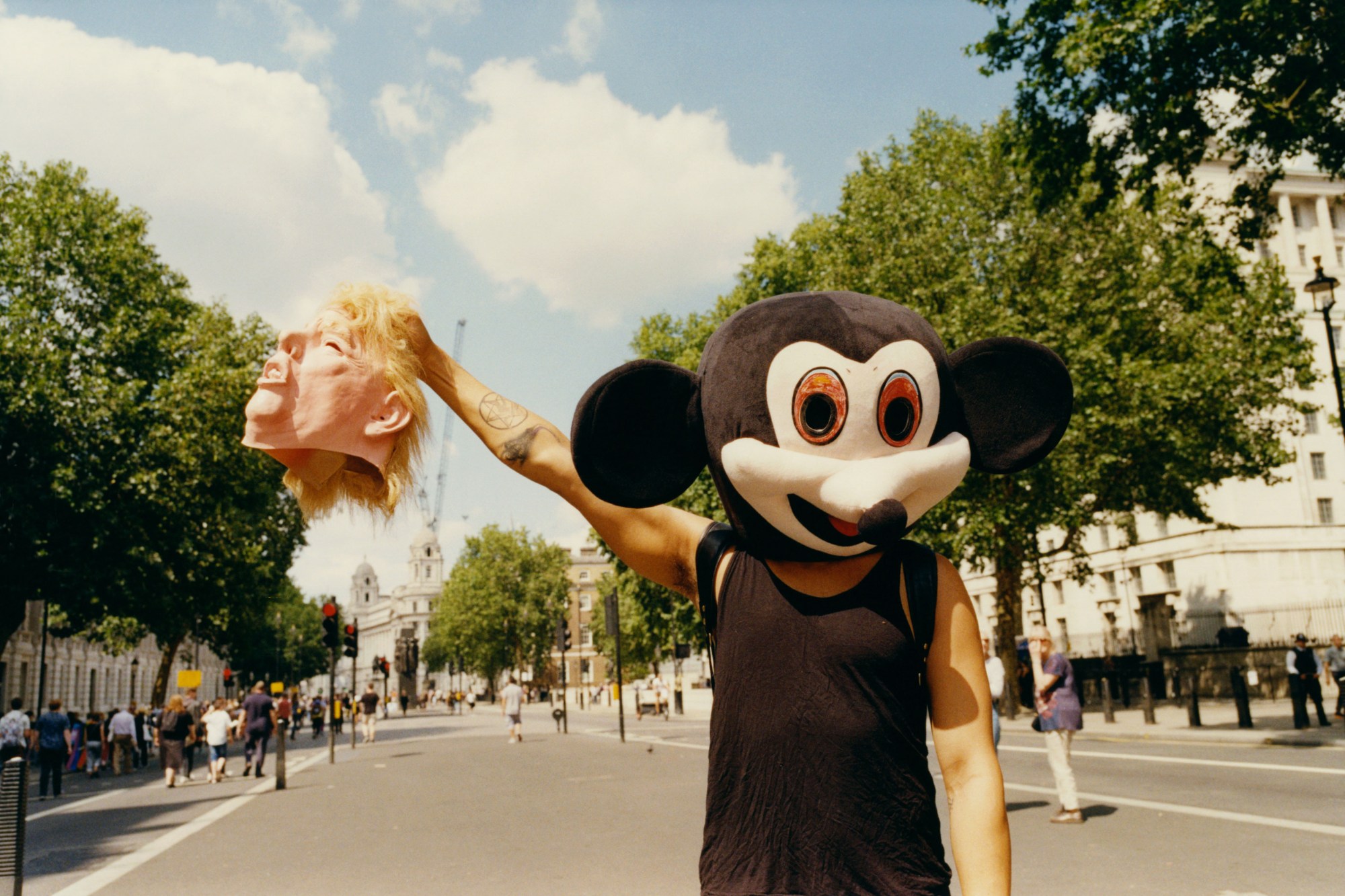

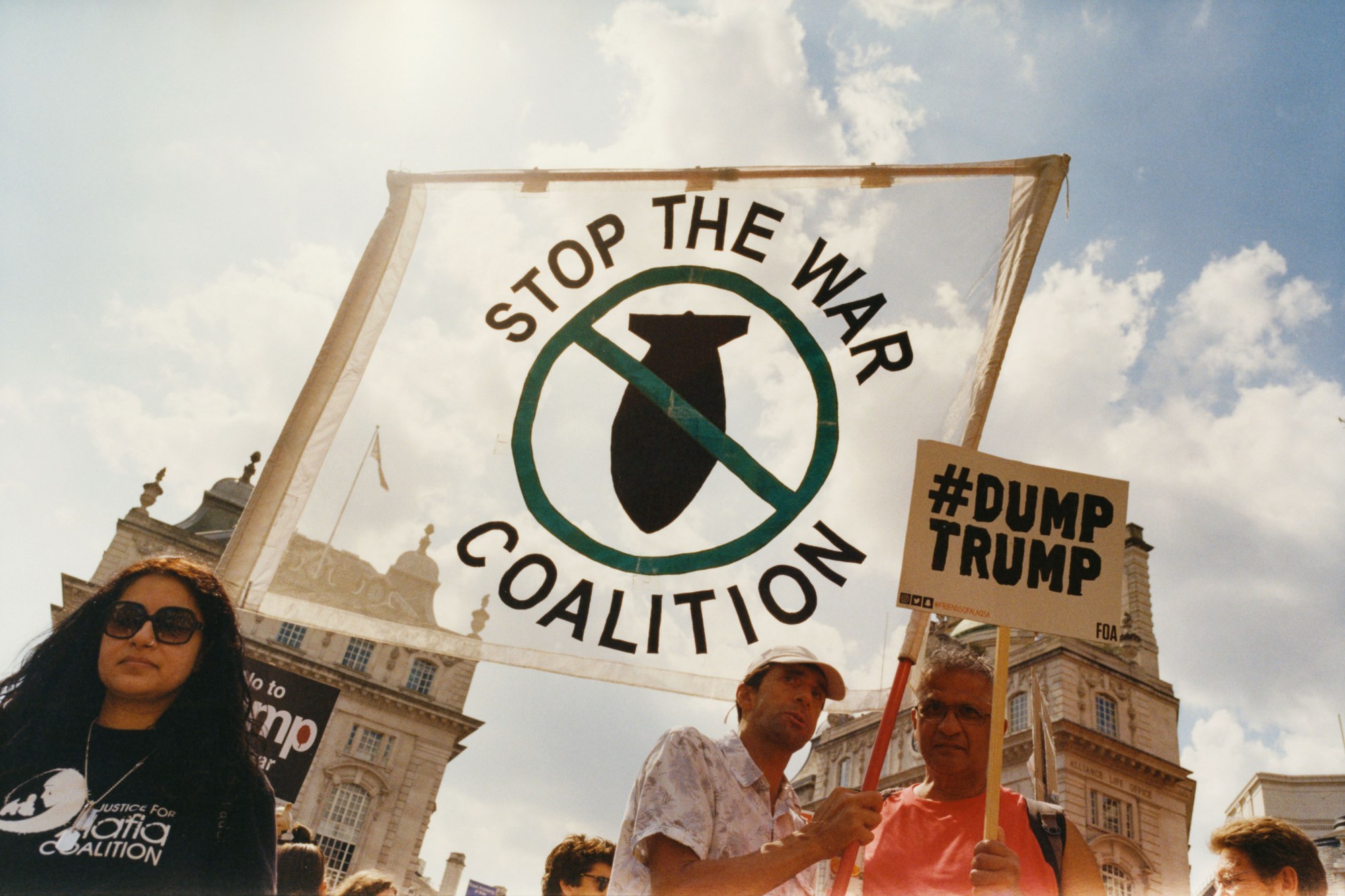
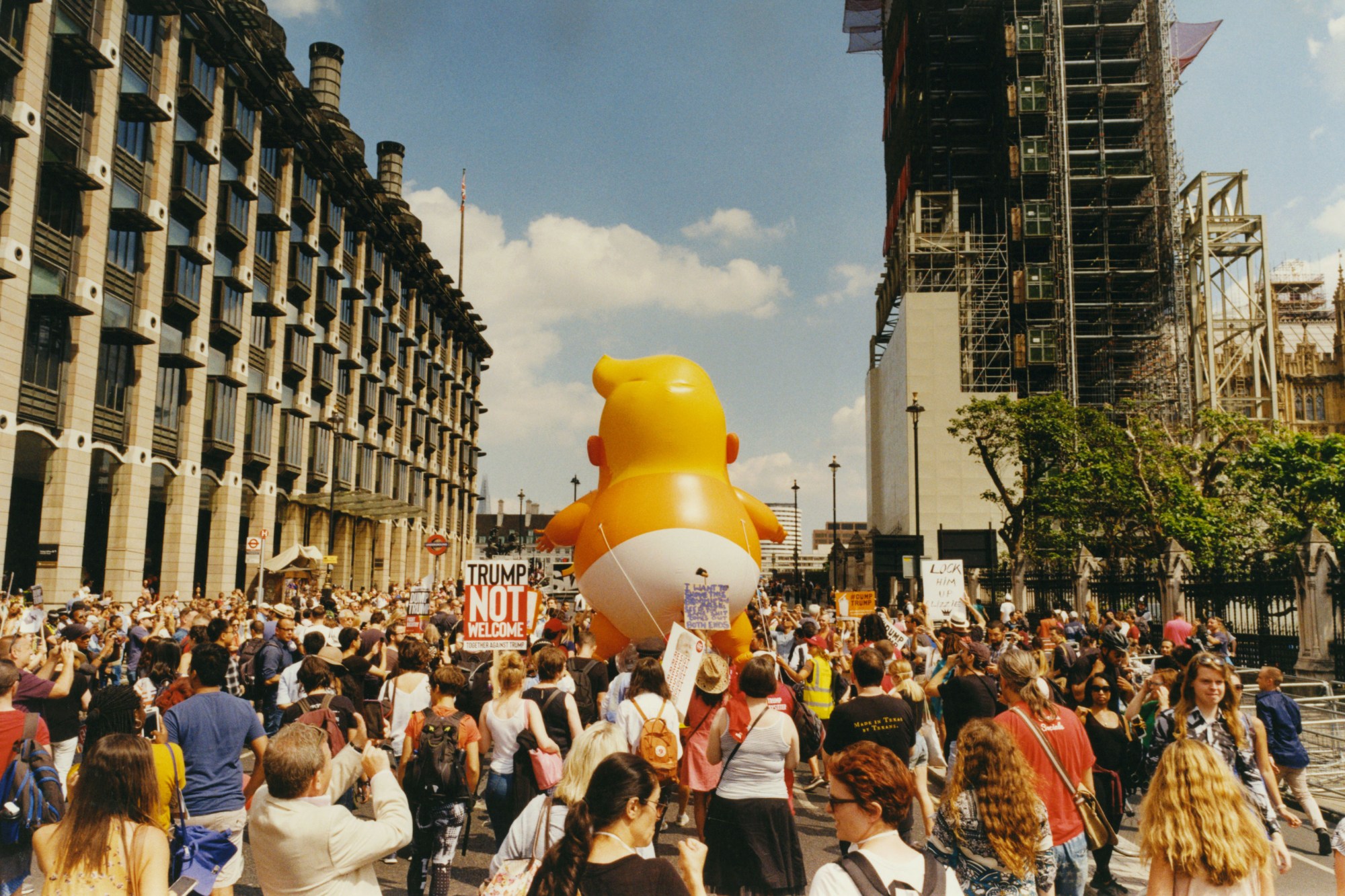
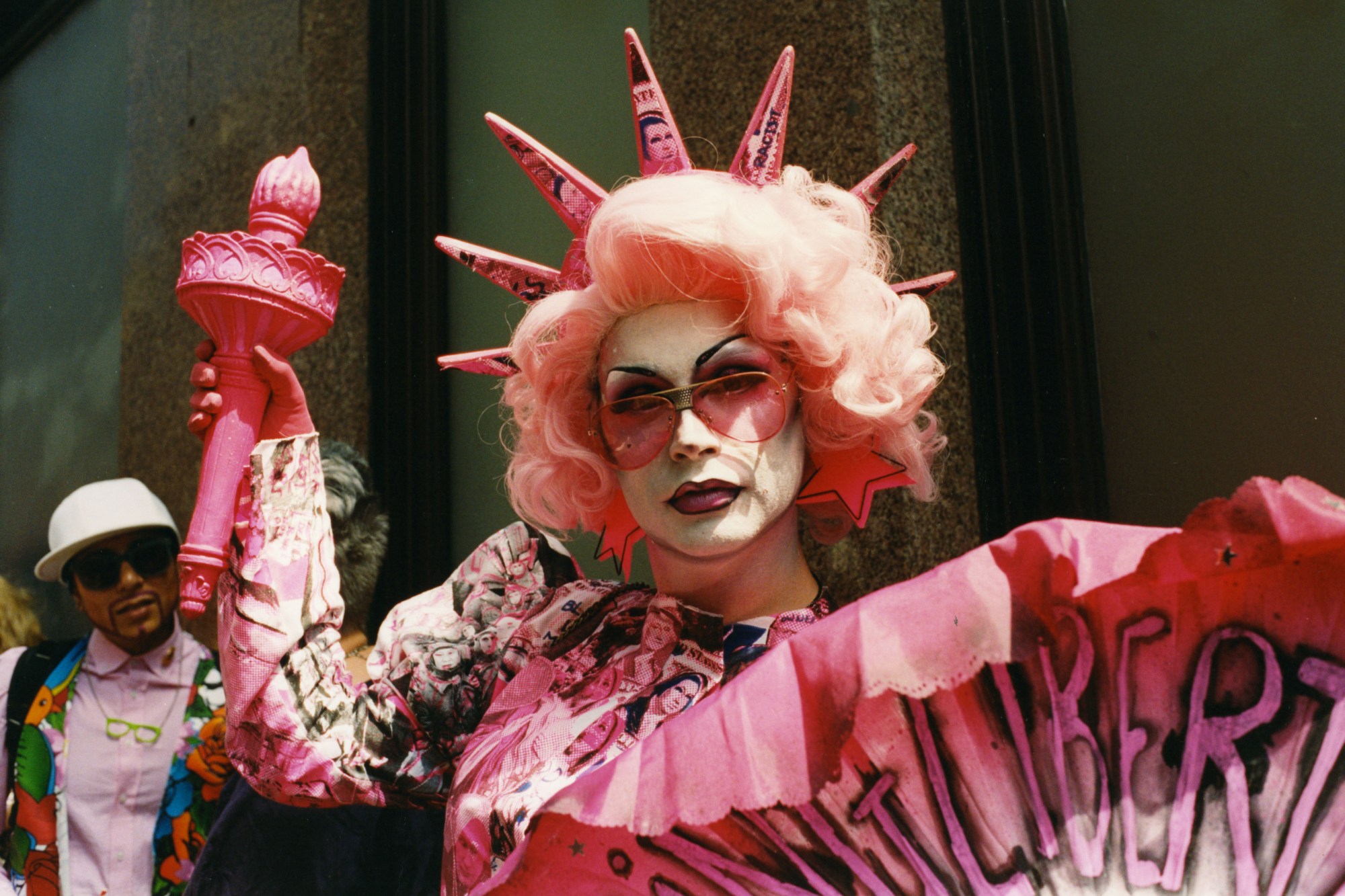
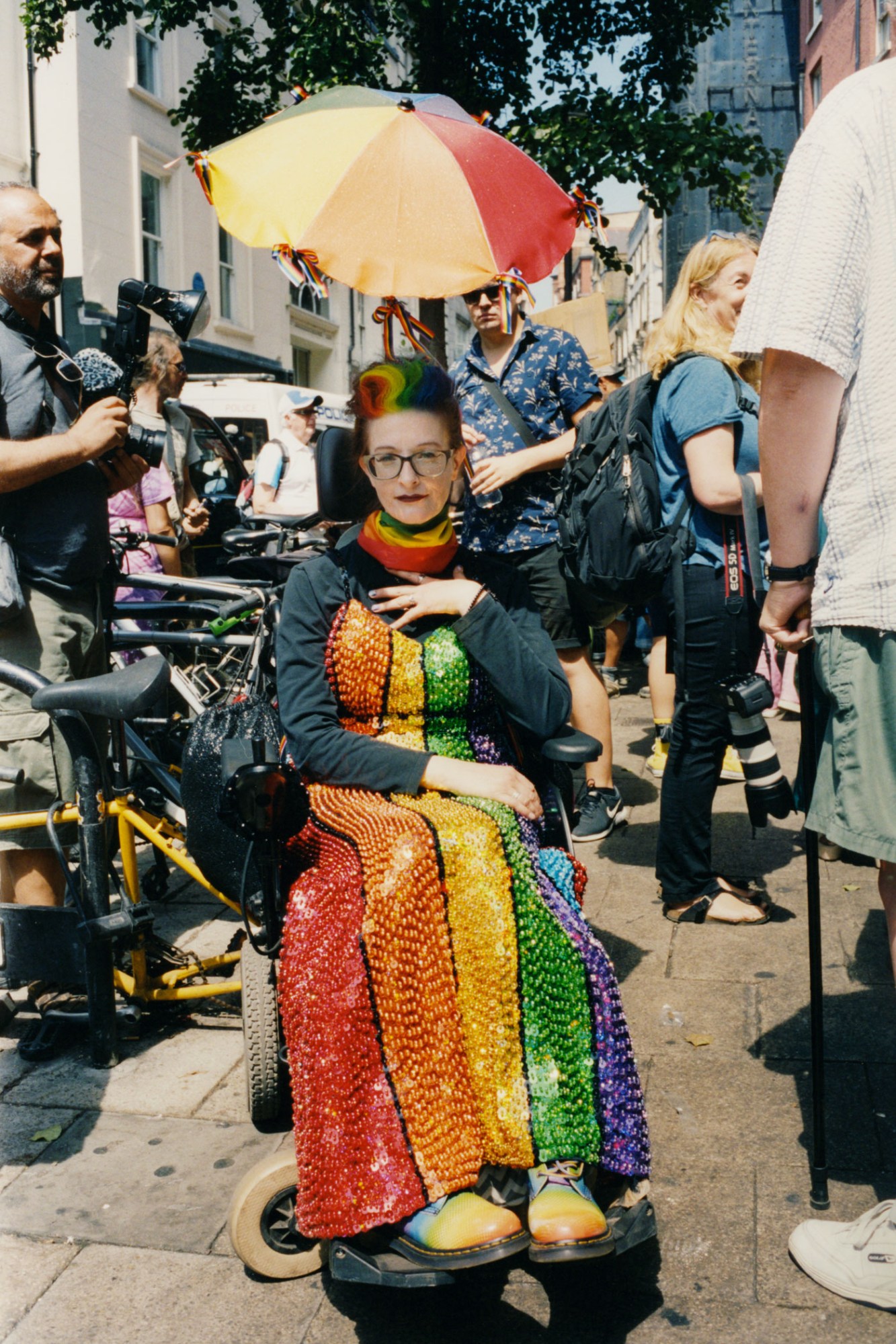
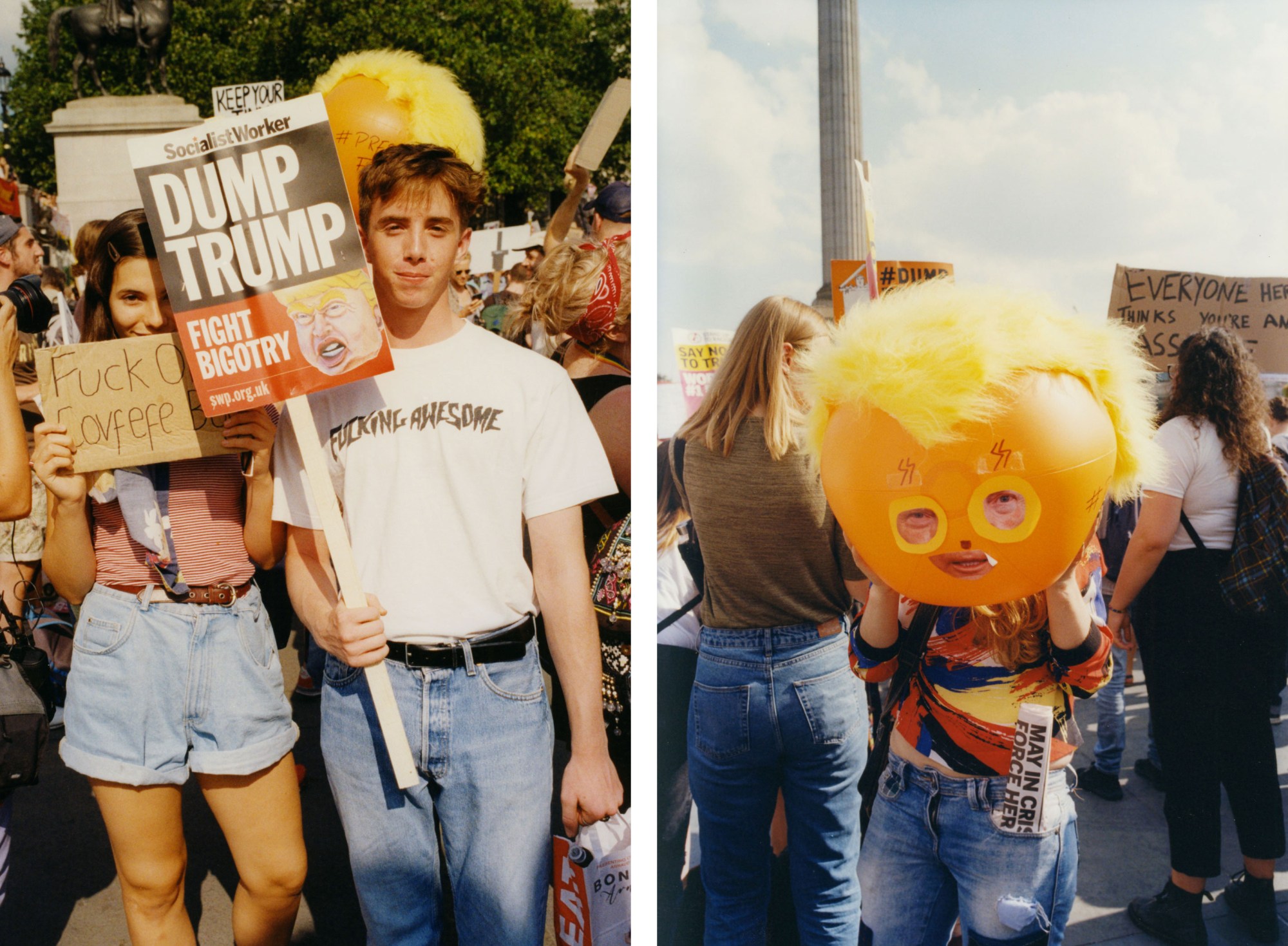
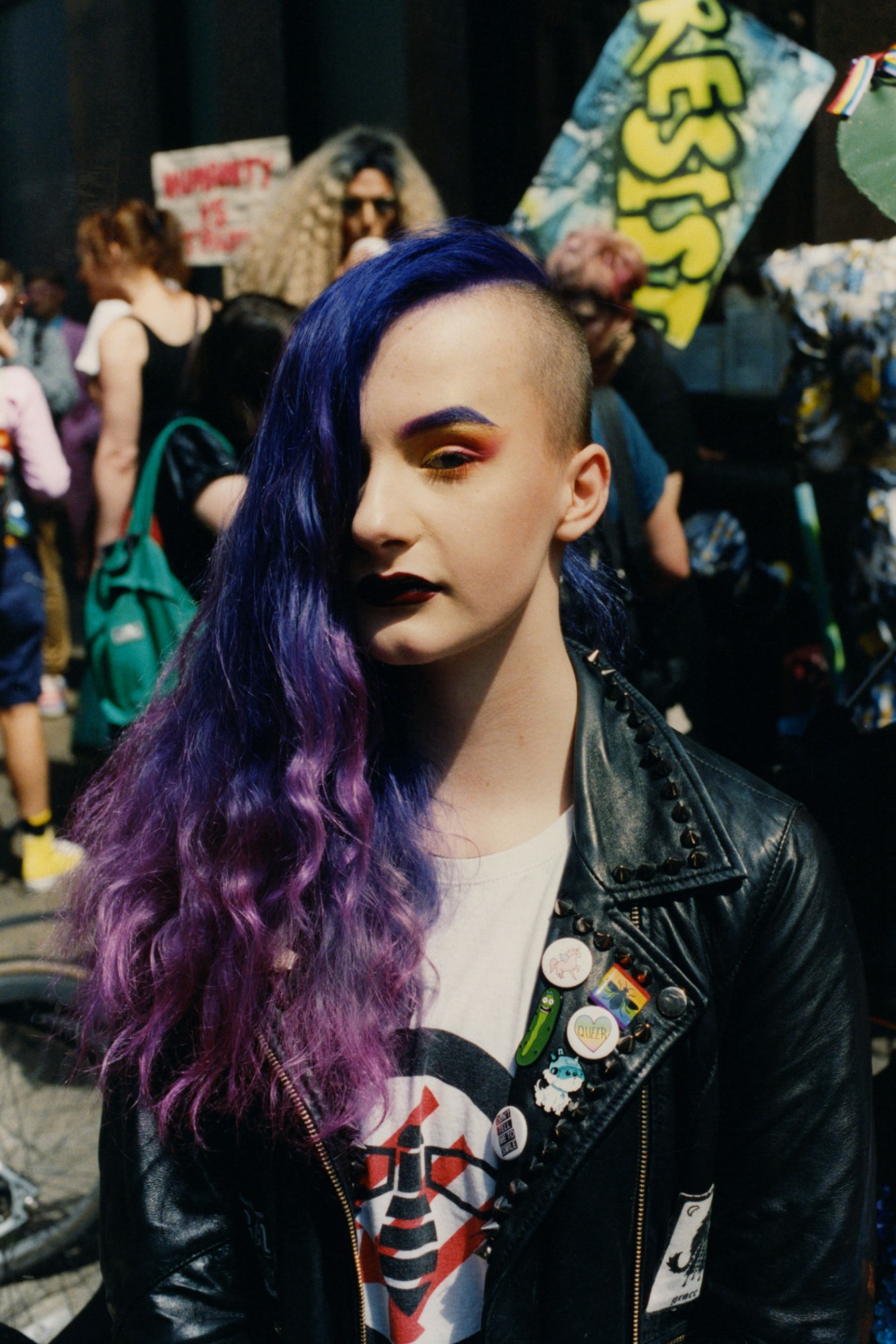
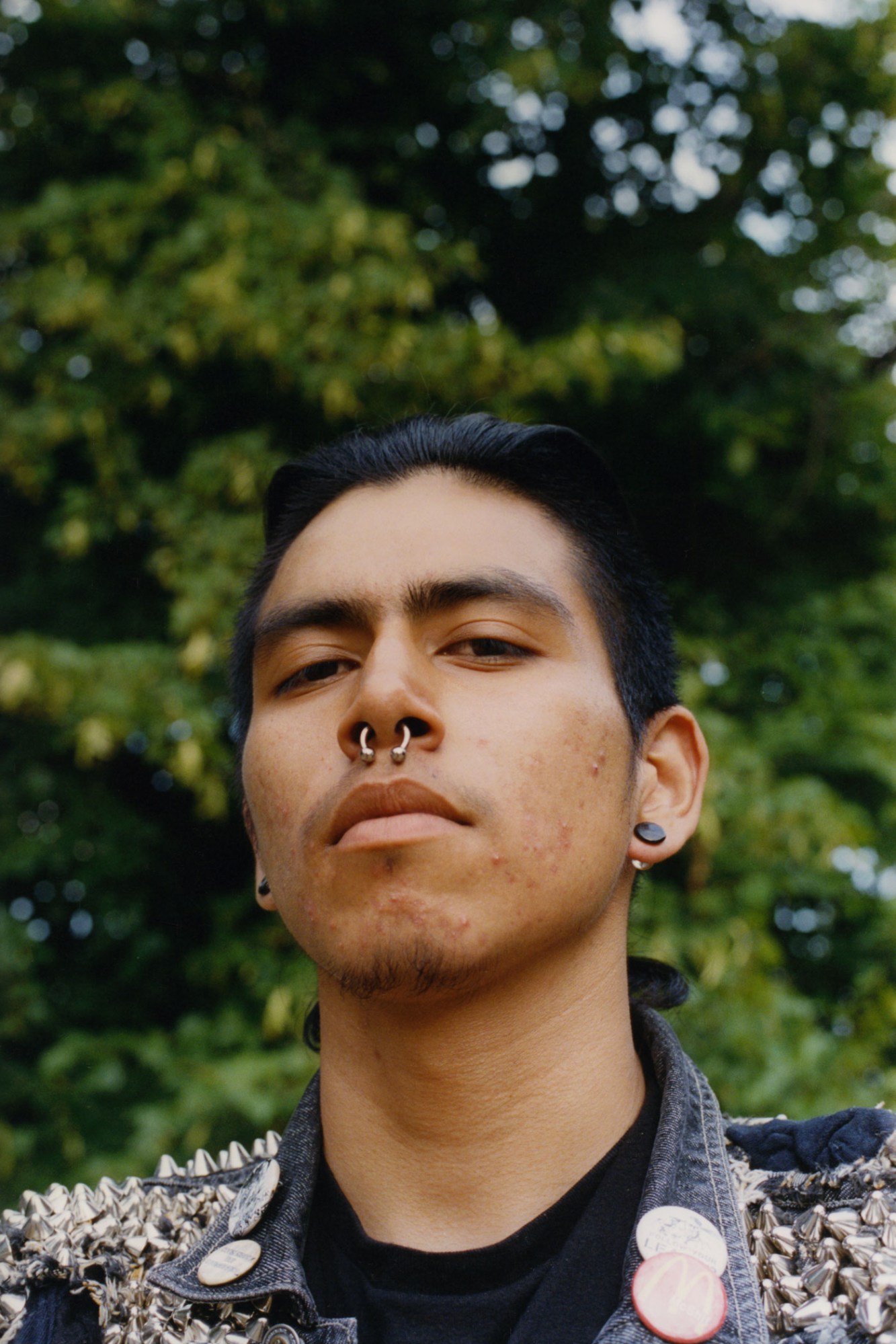
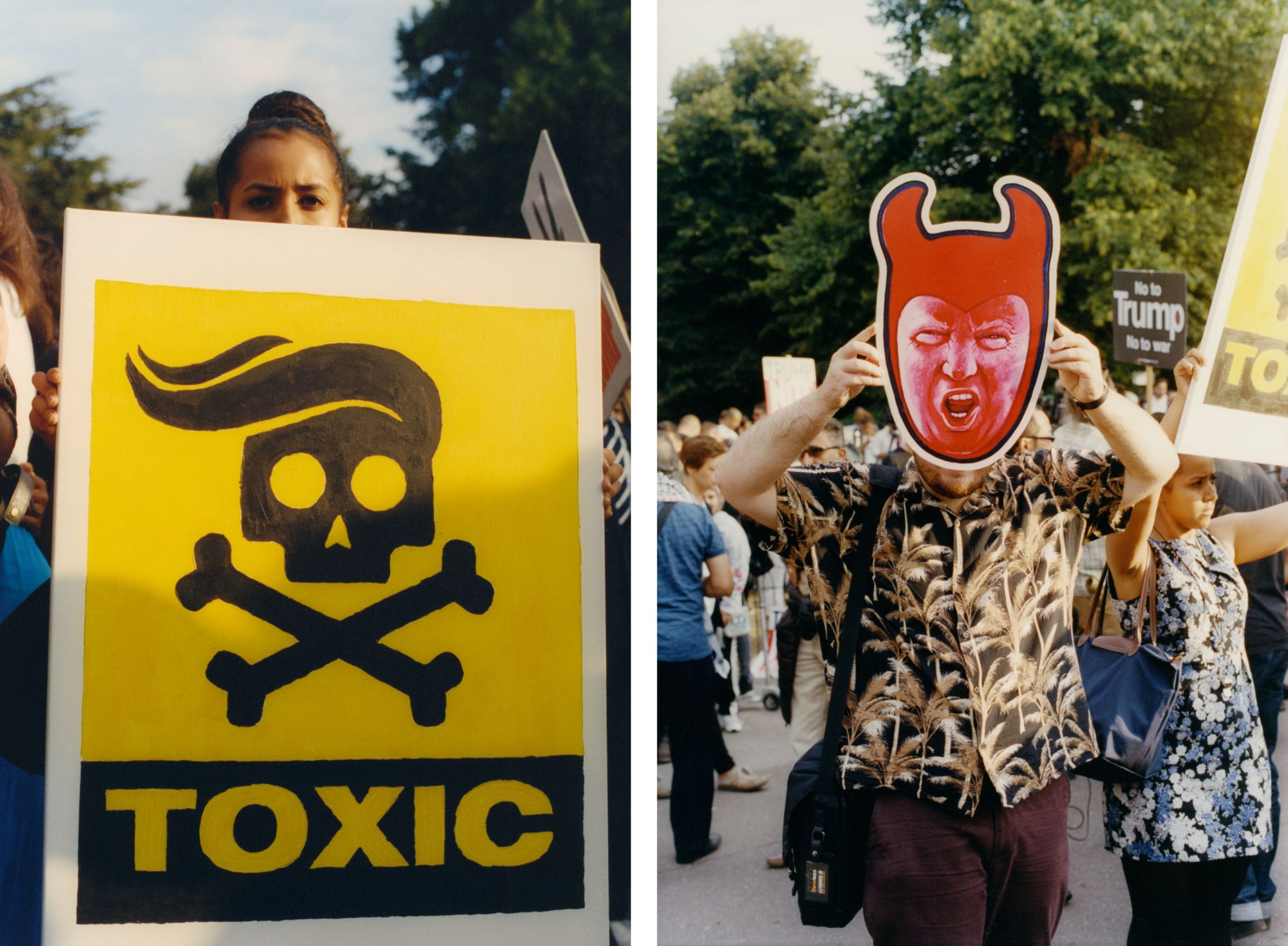
Credits
Photography Ivan Ruberto
